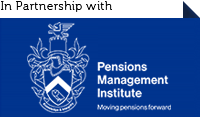Interview Techniques
The interview is your opportunity to make an impression to a new employer and it will help you find out about the specifications of the position and company background.
What is the employer looking for?
Employers use interviews to ascertain knowledge, skills and willingness to contribute and fit into the organisation’s culture. They also want to see if your career goals are in line with the opportunity available and to ensure that a prospective employee will become a valued, trusted, productive individual within the organisation.
Preparation
Prior to the interview it is important to think about all the reasons why you are attending it and what you have to offer. This is your opportunity to make an impression on a new employer and it will help you find out about the requirements of the role and the company background.
Make sure you understand all elements of the job description. It is also essential to research the organisation and familiarise yourself with their product or services, and other organisations operating in the same field.
It is also very important to remember that no two interviews are the same and that you can always improve your interview style with thorough preparation.
First Impressions
Without exception you should always wear business attire, even if you are aware that the Company has a casual dress policy.
Ensure you have directions and a map, plan your route or investigate train times.
Be polite to everyone that you meet at the client’s premises, including security staff and receptionists.
When introduced to your interviewer, stand up, look them in the eye, smile and give them a firm handshake.
The interviewer will usually make an effort to relax you initially with general conversation. Be amenable to this as this is an important time to build rapport with the interviewer.
If you are offered a drink, do accept it.
Points to consider throughout the interview
Be prepared with answers to the traditional interview questions. Rehearse your answers with a friend who will give you honest feedback about the content of your answer and body language.
Be ready to discuss both short and long term career goals in general terms. Also prepare to discuss the reasons you left previous jobs, make sure your responses are honest and positive.
Aim for clarity, honesty and provide answers that demonstrate your skills by giving relevant examples.
Be specific in your answers. Avoid rambling or going off on a tangent.
Ask for clarification if you are unsure of the question.
Explain your past successes, the more you can clearly describe the experience, the people involved, the challenge and the solutions, the more you’ll stand out in the interviewer’s mind.
Concentrate on the employer’s needs.
Describe your past responsibilities and accomplishments.
Sample interview questions
Here is a list of some typical interview questions. It is a good idea to reflect on the sort of answer you might give before an interview but it is unwise to memorise answers off pat as you risk coming across as stilted and unnatural.
Some of these types of questions may be part of a ‘competency based’ interview. This is where the interviewer will focus on asking for specific examples of how you handled a particular situation, what you learnt from this and if you would react the same way again. The questions will usually be relevant to the content of the job description.
- Why do you want this job, and what qualities do you think this job requires?
- Why do you want to work for this organisation?
- What can we offer you that your current organisation cannot?
- How long have you been looking for a new job?
- What sorts of jobs are you considering at the moment?
- What are your duties on a day-to-day basis?
- What was your greatest success and how did you achieve it?
- What has been your biggest failure?
- How do you handle criticism?
- How do you work with others?
- What are your strengths/weaknesses?
- Give me an example of when you took the initiative to solve a problem?
- What motivates you or what are your career goals?
- How did you get on with your last manager/colleagues?
- What proactive steps have you taken to make your workplace more efficient and productive? Specifically describe a policy, project or system you created or initiated.
- Describe a high-pressure situation you had to handle at work. Tell me what happened, who was involved and what you did in terms of problem solving.
- Some situations require us to express ideas or opinions in a very tactful and careful way. Tell me about a time when you were successful in this type of situation.
Questions from you
Have some well thought-out questions that would help further your understanding of the role and company. Do not ask questions about the salary or benefits package, as this will only be relevant at the offer stage, and your Consultant will enter into such discussions on your behalf.
At the end of the interview
Do remember to thank the interviewer for their time, and if you are interested in the position tell them ‘I really do like the sound of this position because…… it will provide me with more exposure to clients; there is supervisory requirements; there is scope for training and real career progression’.
Also ask the interviewer what is the timescale, and when you should expect to hear if you have been successful for the next stage.
| This article was kindly supplied by BranWell Ford, you can find more career guidance on their website. |  |







